M. G. Vassanji - Assassins Song
Here you can read online M. G. Vassanji - Assassins Song full text of the book (entire story) in english for free. Download pdf and epub, get meaning, cover and reviews about this ebook. year: 2007, publisher: Knopf, Random House, Inc., genre: Detective and thriller. Description of the work, (preface) as well as reviews are available. Best literature library LitArk.com created for fans of good reading and offers a wide selection of genres:
Romance novel
Science fiction
Adventure
Detective
Science
History
Home and family
Prose
Art
Politics
Computer
Non-fiction
Religion
Business
Children
Humor
Choose a favorite category and find really read worthwhile books. Enjoy immersion in the world of imagination, feel the emotions of the characters or learn something new for yourself, make an fascinating discovery.

- Book:Assassins Song
- Author:
- Publisher:Knopf, Random House, Inc.
- Genre:
- Year:2007
- Rating:5 / 5
- Favourites:Add to favourites
- Your mark:
- 100
- 1
- 2
- 3
- 4
- 5
Assassins Song : summary, description and annotation
We offer to read an annotation, description, summary or preface (depends on what the author of the book "Assassins Song " wrote himself). If you haven't found the necessary information about the book — write in the comments, we will try to find it.
Assassins Song — read online for free the complete book (whole text) full work
Below is the text of the book, divided by pages. System saving the place of the last page read, allows you to conveniently read the book "Assassins Song " online for free, without having to search again every time where you left off. Put a bookmark, and you can go to the page where you finished reading at any time.
Font size:
Interval:
Bookmark:
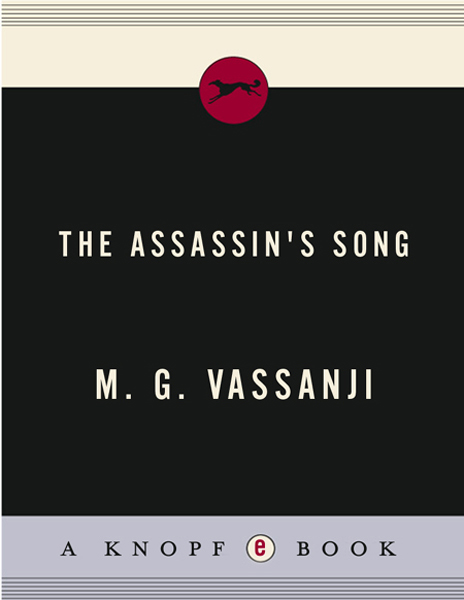
ALSO BY M. G. VASSANJI
The In-Between World of Vikram Lall
When She Was Queen
Amriika
The Book of Secrets
Uhuru Street
No New Land
The Gunny Sack
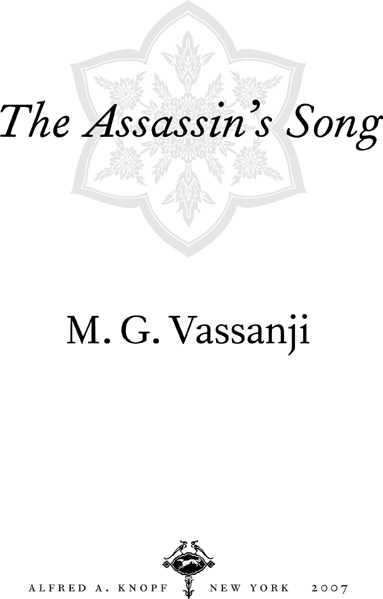
And song is not desire; so you taught.
Nor is it courtship, nor is it courtship's prize
Song is being.
RILKE

Postmaster Flat, Shimla. April 14, 2002.
After the calamity, a beginning.
One night my father took me out for a stroll. This was a rare treat, for he was a reticent man, a great and divine presence in our village who hardly ever ventured out. But it was my birthday. And so my heart was full to bursting with his tall, looming presence beside me. We walked along the highway away from the village, and when we had gone sufficiently far, to where it was utterly quiet and dark, Bapu-ji stopped and stared momentarily at our broken, grey road blurring ahead into the night, then slowly turned around to go back. He looked up at the sky; I did likewise. Look, Karsan, said Bapu-ji. He pointed out the bright planets overhead, the speckle that was the North Star, at the constellations connected tenuously by their invisible threads. When I was young, he said, I wished only to study the stars But that was a long time ago, and a different world
But what lies above the stars? he asked, after the pause, his voice rising a bare nuance above my head. That is the important question I had to learn. What lies beyond the sky? What do you see when you remove this dark speckled blanket covering our heads? Nothing? But what is nothing?
I was eleven years old that day. And my father had laid bare for me the essential condition of human existence.
I gaped with my child's eyes at the blackness above my head, imagined it as a dark blanket dotted with little stars, imagined with a shiver what might lie beyond if you suddenly flung this drapery aside. Loneliness, big and terrifying enough to make you want to weep alone in the dark.
We slowly started on our way back home.
There is no nothing, Bapu-ji continued, as if to assuage my fears, his tremulous voice cutting like a saw the layers of darkness before us, when you realize that everything is in the One
My father was the Sahebthe lord and keeperof Pirbaag, the Shrine of the Wanderer, in our village of Haripir, as was his father before him, as were all our ancestors for many centuries. People came to him for guidance, they put their lives in his hands, they bowed to him with reverence.
As we walked back together towards the few modest lights of Haripir, father and first son, a certain fear, a heaviness of the heart came over me. It never left me, even when I was far away in a world of my own making. But at that time, although I had long suspected it, had received hints of it, I knew for certain that I was the gaadi-varas, the successor and avatar to come at Pirbaag after my father.
I often wished my distinction would simply go away, that I would wake up one morning and it wouldn't be there. I did not want to be God, or His trustee, or His avatarthe distinctions often blurred in the realm of the mystical that was my inheritance. Growing up in the village all I wanted to be was ordinary, my ambition, like that of many another boy, to play cricket and break the world batting record for my country. But I had been chosen.
When we returned home, instead of taking the direct path from the roadside gate to our house, which lay straight ahead across an empty yard, my father took me by the separate doorway on our left into the walled compound that was the shrine. This was Pirbaag: calm and cold as infinity. The night air suffused with a faint glow, and an even fainter trace of rose, all around us the raised graves of the saints and sufis of the past, and our ancestors, and others deserving respect and prayers. They were large and small, these graves, ancient and recent, some well tended and heaped with flowers and coloured cloth, others lying forlorn at the fringes among the thorns, neglected and anonymous. This hallowed ground was our trust; we looked after it for people of any creed from any place to come to be blessed and comforted.
Overlooking everything here, towards the farther side of the compound was the grand mausoleum of a thirteenth-century mystic, a sufi called Nur Fazal, known to us belovedly as Pir Bawa and to the world around us as Mussafar Shah, the Wanderer. One day, centuries ago, he came wandering into our land, Gujarat, like a meteor from beyond, and settled here. He became our guide and guru, he showed us the path to liberation from the bonds of temporal existence. Little was known and few really cared about his historical identity: where exactly he came from, who he was, the name of his people. His mother tongue was Persian, perhaps, but he gave us his teachings in the form of songs he composed in our own language, Gujarati.
He was sometimes called the Gardener, because he loved gardens, and he tended his followers like seedlings. He had yet another, curious name, Kaatil, or Killer, which thrilled us children no end. But its provenance was less exciting: he had a piercing look, it was said, sharp as an arrow, and an intellect keen as the blade of a rapier, using which he won many debates in the great courts of the kings.
I would come to believe that my grandfather had an idea of his identity, and my Bapu-ji too, and that in due course when I took on the mantle I too would learn the secret of the sufi.
But now the shrine lies in ruins, a victim of the violence that so gripped our state recently, an orgy of murder and destruction of the kind we euphemistically call riots. Only the rats visit the sufi now, to root among the ruins. My father is dead and so is my mother. And my brother militantly calls himself a Muslim and is wanted for questioning regarding a horrific crime. Perhaps such an end was a foregone conclusionKali Yuga, the Dark Age, was upon us, as Bapu-ji always warned, quoting our saints and the scriptures: an age when gold became black iron, the ruler betrayed his trust, justice threw aside its blindfold, and the son defied his father. Though Bapu-ji did not expect this last of his favoured first son.
The thought will always remain with me: Was my betrayal a part of the prophecy; or could I have averted the calamity that befell us? My logical mindour first casualty, according to Bapu-jihas long refused to put faith in such prophecies. I believe simply that my sin, my abandonment and defiance of my inheritance, was a sign of the times. Call the times Kali Yuga if you likeand we can quibble over the question of whether there ever was a Golden Age in which all was good and the sacrificed horse stood up whole after being ritually quartered and eaten. Whatever the case, I was expected to rise above the dark times and be the new saviour.
This role, which I once spurned, I must now assume. I, the last lord of the shrine of Pirbaag, must pick up the pieces of my trust and tell its storyand defy the destroyers, those who in their hatred would not only erase us from the ground of our forefathers but also attempt to write themselves upon it, make ink from our ashes.
The story begins with the arrival in Gujarat of the sufi Nur Fazal. He was our origin, the word and the song, our mother and father and our lover. Forgive me if I must sing to you. The past was told to me always accompanied by song; and now, when memory falters and the pictures in the mind fade and tear and all seems lost, it is the song that prevails.
Font size:
Interval:
Bookmark:
Similar books «Assassins Song »
Look at similar books to Assassins Song . We have selected literature similar in name and meaning in the hope of providing readers with more options to find new, interesting, not yet read works.
Discussion, reviews of the book Assassins Song and just readers' own opinions. Leave your comments, write what you think about the work, its meaning or the main characters. Specify what exactly you liked and what you didn't like, and why you think so.

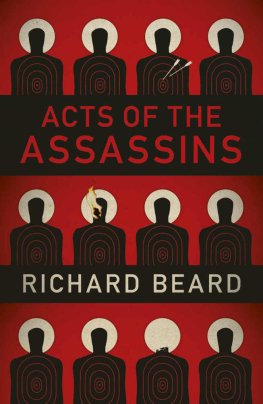
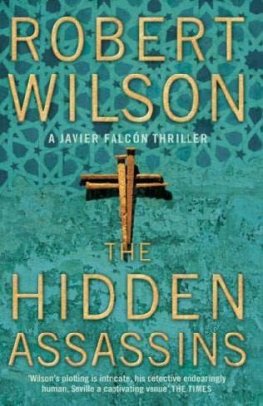

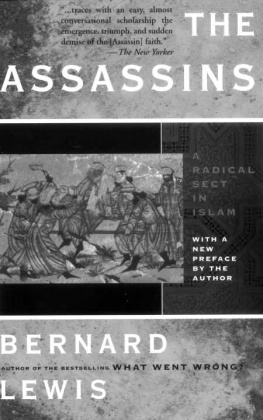
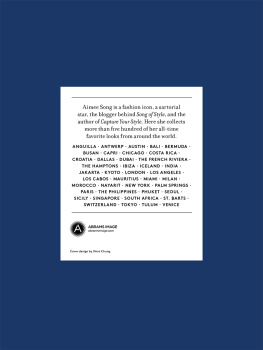
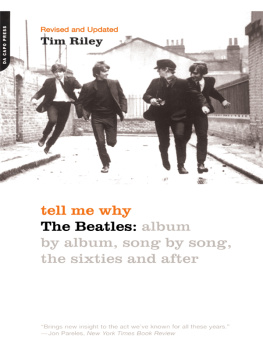

![Othmar Keel - The Song of Songs [Song of Solomon]](/uploads/posts/book/82605/thumbs/othmar-keel-the-song-of-songs-song-of-solomon.jpg)